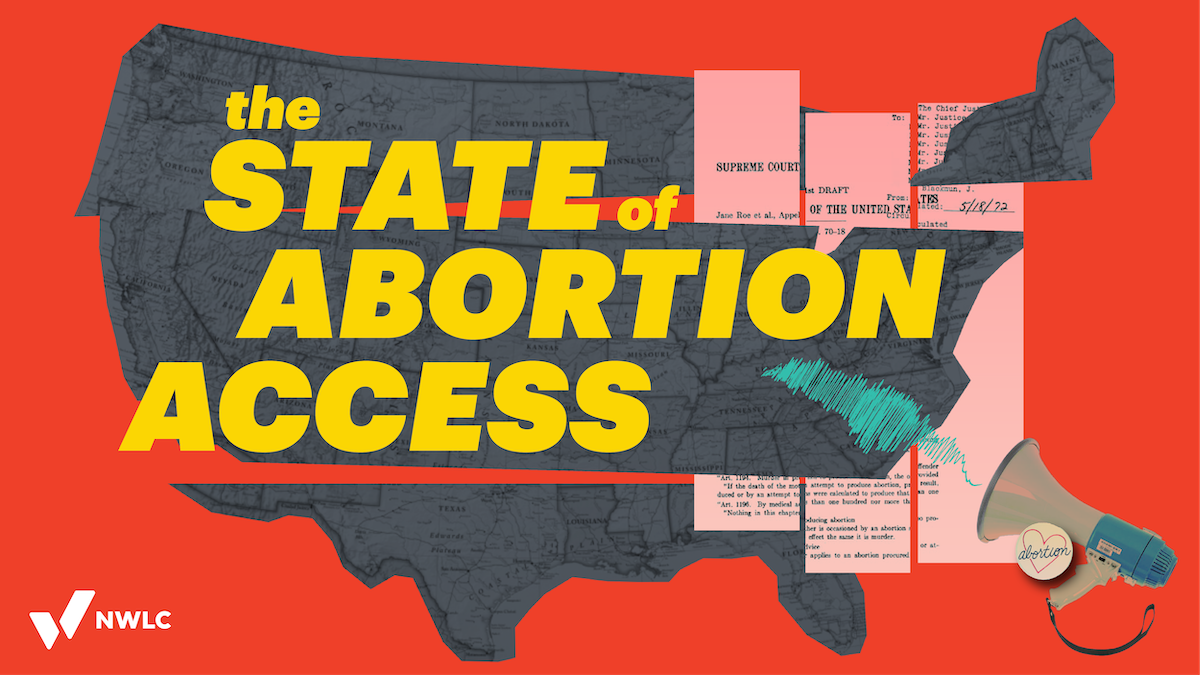Abortion rights, women of color, and LGBTQIA+ people are under attack. Pledge to join us in fighting for gender justice.
Why You Can’t Get Fired for Having an Abortion: The Latest Sex Discrimination Ruling From a Louisiana Federal Court

Discrimination against an individual for having an abortion is sex discrimination, plain and simple. A federal district court in Louisiana recently reaffirmed this basic principle in the case Ducharme v. Crescent City Déjà Vu, L.L.C., in which the court held that federal and state anti-discrimination laws prohibit employers from firing employees for having an abortion.
Ms. Ducharme was a bartender and server at the Déjà Vu Bar & Grill in New Orleans. In September 2017, Ms. Ducharme told her manager that she was pregnant and needed two days off to have an abortion. As more and more anti-abortion laws shut down abortion clinics and force women to jump through unnecessary hurdles, individuals who have decided to have an abortion are being forced to travel farther and are being delayed from getting the care they need. This is a particular burden for those who work in jobs with inflexible schedules, have caregiver responsibilities, or otherwise can’t afford it.
Déjà Vu fired Ms. Ducharme on the day of the procedure. She sued Déjà Vu in Louisiana federal court under Title VII of the Civil Rights Act of 1964, which prohibits sex discrimination in employment, and under the Louisiana Pregnancy Discrimination Act. Déjà Vu defended the lawsuit in part by arguing that firing someone for having an abortion is not sex discrimination, even though Title VII, as amended by the Pregnancy Discrimination Act, explicitly defines sex discrimination to include discrimination “because of or on the basis of pregnancy, childbirth, or related medical conditions.”
The court rejected Déjà Vu’s argument outright, concluding that “[a] woman terminated from employment because she had an abortion was terminated because she was affected by pregnancy.” The court noted that two federal appeals courts and the Equal Employment Opportunity Commission (the agency responsible for enforcing Title VII) have all concluded that Title VII prohibits discrimination against women for having an abortion.
Although the court ultimately determined that Ms. Ducharme did not have enough evidence to prove her case, the court’s legal conclusion – that employees cannot be fired or disciplined for having an abortion – is an important victory for women nationwide. After the court issued its decision, the parties reached a private settlement.
This case is particularly consequential in light of the Trump-Pence administration’s ceaseless assault on reproductive health care and continuous efforts to undermine protections against discrimination. Just last month, the Trump-Pence administration proposed a rule that would roll back protections under another federal anti-discrimination statute, the Health Care Rights Law. The Health Care Rights Law, otherwise known as Section 1557 of the ACA, is the first federal law to broadly prohibit sex discrimination in health care. But the Trump-Pence administration’s proposed rule attempts to walk back the existing understanding that “sex discrimination” includes discrimination for having an abortion and also tries to carve out abortion care and coverage from Section 1557’s protections against sex discrimination. Ms. Ducharme’s case bolsters the precedent that discrimination on the basis of sex includes abortion.
This win also highlights the important role states and localities play in protecting against discrimination. The Louisiana federal court held that because the Louisiana Pregnancy Discrimination Act uses the same language as Title VII, it also prohibits discrimination against employees for having an abortion. Other states and localities, including Delaware, the District of Columbia, and New York City, have enacted Reproductive Health Non-Discrimination Acts, laws that explicitly prohibit employers from discriminating against employees because of their reproductive health decisions, including decisions to terminate pregnancy, use birth control, have children outside of marriage, or undergo IVF. These laws foreclose any possibility of misinterpretation and help ensure that workers do not have to fear losing their jobs as a result of their private health care decisions.
I thank Ms. Ducharme for her courage in bringing this case. Everyone should be able to make the decision about whether, when, and how to have children that is best for them, without fear of being fired. At NWLC, we will continue to fight until no person suffers discrimination because of their personal health care decisions.





